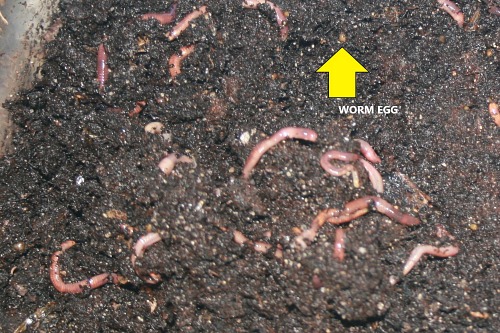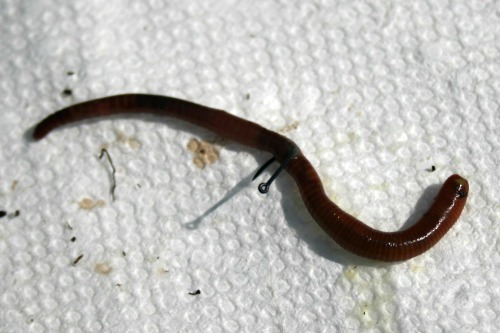The Amazing World of Red Wigglers: Increase Your Soil Fertility Today
The duty of red wigglers, or Eisenia fetida, in enhancing dirt fertility is a subject of growing interest amongst gardeners and farming experts. These small yet efficient microorganisms change organic waste right into important worm castings, dramatically enhancing dirt health and wellness and promoting lasting practices. As we discover the benefits of vermicomposting and the sensible steps to develop an efficient worm container, the prospective influence of these worms on your gardening success comes to be progressively evident. Comprehending the nuances of their care and application might just alter the way you approach dirt management. What understandings can be gained from incorporating these remarkable creatures right into your gardening routine?
Comprehending Red Wigglers
Red wigglers, medically called Eisenia fetida, are a species of earthworm that play a vital role in enhancing soil fertility. These worms flourish in organic-rich settings, such as garden compost heaps and decaying plant material, where they consume organic waste and secrete nutrient-dense spreadings. Their special makeup, including a fractional body and a clitellum, permits them to reproduce rapidly and successfully process huge amounts of raw material.

The eco-friendly value of red wigglers prolongs past simple waste processing; they add to the soil food internet, promoting a diverse neighborhood of microorganisms that better improve soil wellness. Understanding the biology and actions of red wigglers is necessary for utilizing their complete possibility in sustainable farming and gardening techniques.
Benefits of Vermicomposting
Additionally, vermicomposting improves dirt structure and oygenation. The existence of worm castings boosts dirt texture, enabling for much better water retention and water drainage. This well balanced moisture level is vital for origin development and the overall health and wellness of plants. Moreover, red wigglers aid damage down natural matter, accelerating decomposition and recycling nutrients back into the soil.
Vermicomposting additionally cultivates microbial task, which is essential for a healthy and balanced dirt environment. Beneficial bacteria prosper in the visibility of worm castings, aiding in the failure of natural materials and boosting vitamins and mineral availability to plants.
Finally, vermicomposting acts as an efficient waste administration service, decreasing garbage dump waste by reusing kitchen scraps and various other organic products. This not just adds to ecological sustainability but additionally advertises a circular economy within horticulture and farming.
Just How to Establish Up a Worm Container
Setting up a worm bin is an uncomplicated process that can substantially improve your composting initiatives. Begin by selecting a proper container, which can vary from a commercially available worm container to a basic plastic or wooden box (Red Wiggler Express). Guarantee the container has appropriate ventilation; little holes in the lid and sides will promote air flow
Next, develop a bedding layer to provide a comfy atmosphere for the red wigglers. This can be made from shredded newspaper, cardboard, or coconut coir, dampened to a wet, sponge-like uniformity. Load the container to about one-third complete with this bedding product.
Once the bed linen is prepared, it's time to introduce the worms. Red wigglers flourish in organic waste, so location them carefully onto the bed linen. Cover the worms with a light layer of extra bed linens to assist them accommodate.
Feeding Your Red Wigglers
Supplying the right food for your red wigglers is important for their health and wellness and the performance of your composting system. Red wigglers flourish on a diverse diet regimen, mostly including organic products such as fruit and vegetable scraps, coffee grounds, and shredded paper. These materials not just supply crucial nutrients however also contribute to the microbial activity in the worm container, which is critical for the worms' food digestion.
It is very important to avoid particular foods, such as milk products, oils, and meats, as these can attract insects and develop undesirable odors. In addition, citrus peels and excessively hot foods need to be limited because of their possible to damage the worms. A well balanced method to feeding entails keeping track of the amount of food introduced to the container, making sure that it is taken in within a reasonable period to avoid excess waste build-up.
To advertise optimum digestion, it is useful to cut or shred bigger food things prior to adding them to the bin. This method enhances the surface area for microbial action, assisting in quicker decay and enhancing the general performance of your composting system. On a regular basis observing the worms' feeding behaviors will assist you change their diet plan as needed.
Utilizing Worm Castings in Your Yard

To maximize the benefits, goal to apply roughly one component worm spreadings to 3 parts dirt in your growing beds. Regular applications can bring about improved plant returns and much healthier plants, making worm spreadings a very useful source for both beginner and skilled garden enthusiasts alike. By using this all-natural change, you can cultivate a successful yard while adding to lasting horticulture methods.
Verdict
To conclude, red wigglers exemplify the vital function of vermicomposting in improving dirt fertility. Their capacity to transform organic waste into nutrient-rich spreadings dramatically enriches soil framework and sustains microbial variety. Establishing a vermicomposting system not just promotes sustainable gardening practices but additionally contributes to eco-friendly health. By leveraging the benefits of these exceptional organisms, gardeners can grow extra productive and resistant ecosystems, inevitably promoting a more sustainable technique to farming and gardening.
Comments on “Enhance Your Lawn Care Routine with Premium Lake Hickory Bait Products”